2 min read Simple daily strategies to help you give your body the rest it needs to function properly.
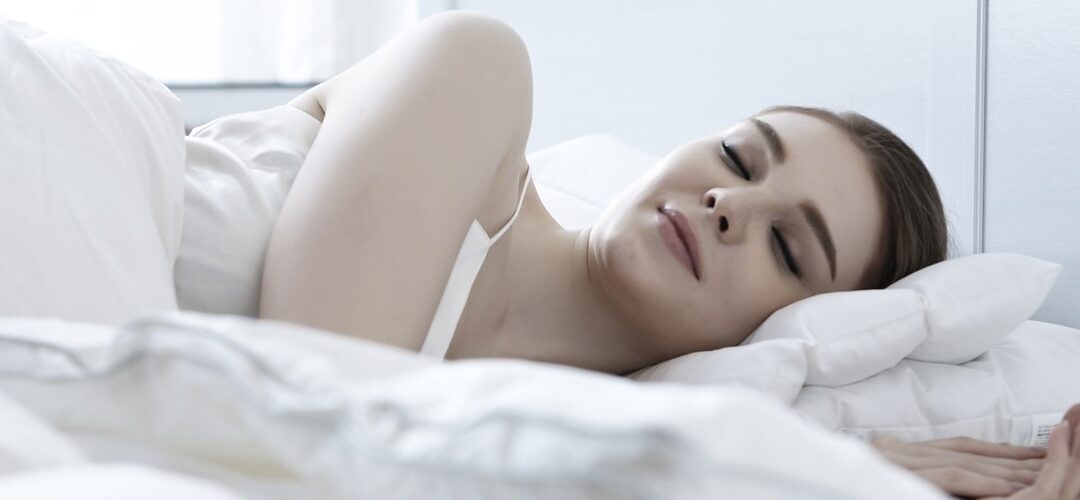

2 min read Simple daily strategies to help you give your body the rest it needs to function properly.
It seems “I can sleep when I’m dead” is the mantra of many Americans in the 21st century. The U.S. is one of the most sleep-deprived nations in the world. A full 20% of Americans sleep less than six hours a night. That’s simply not enough. Global sleep expert Mathew Walker once noted that a more appropriate phrase may be, “If I don’t sleep, I will be dead!” Here are some of the benefits you sacrifice by not getting enough sleep.
Sleep deprivation suppresses your immune system and increases your chances of getting sick. Your lungs are particularly affected, which can lead to an increased risk of respiratory infections. Inadequate sleep also ups the risk of catching colds and flus and lengthens the amount of time it takes to recover.
Chronic sleep deprivation can lead to insulin resistance, which means insulin becomes less effective at clearing sugar out of your blood. As a result, blood sugar levels remain high, even when more insulin is released.
A lack of sleep can also cause stress and hunger hormones to spike and can lead to heartbeat fluctuations. All of this can contribute to the development of metabolic syndrome, obesity, heart disease, high blood pressure, type 2 diabetes, and increase the risk of a heart attack or stroke.
One of the biggest benefits of sleep is the role it plays in cleansing your brain and preventing cognitive decline. Structural connections called glymphatic cells are interspersed between neurons in your brain. These cells act like a spider’s web that holds everything in place.
When you sleep, your glymphatic cells shrink and cerebral spinal fluid washes over them and in between each neuron. This act cleanses the brain of toxins as well as waste products and the buildup of extra chemicals and proteins, including types linked to Alzheimer’s. This is one of the suggested reasons why shortened sleep duration and disruptions in sleep quality may impact Alzheimer’s and dementia risk.
Poor sleep also inhibits physical recovery. Growth hormones are typically released during deep sleep. When that’s interrupted, DNA recovery and tissue repair is impaired. This affects all types of recovery, from a sunburn or paper cut to the healing of muscles and bones. Sleep deprivation has also been associated with low testosterone and impaired fertility. In addition, inadequate sleep decreases the motivation to exercise.
Finally, poor sleep quality is tied to a high mental health burden, including substance abuse, increased depression, anxiety, and even attempted suicide. The body profoundly needs sleep, and when you don’t get enough of it, all systems in your body are affected.
Sleep is much more than a time when we rest our bodies and minds. According to the Sleep Foundation, there are 4 stages of sleep – light sleep (stages 1 and 2), deep sleep (stage 3, sometimes called stage 4 or non-REM sleep), and REM sleep (stage 4, sometimes called stage 5). Deep sleep plays a critical role in your memory, recovery, and immunity. This article will discuss more about deep sleep and its impact on your health.
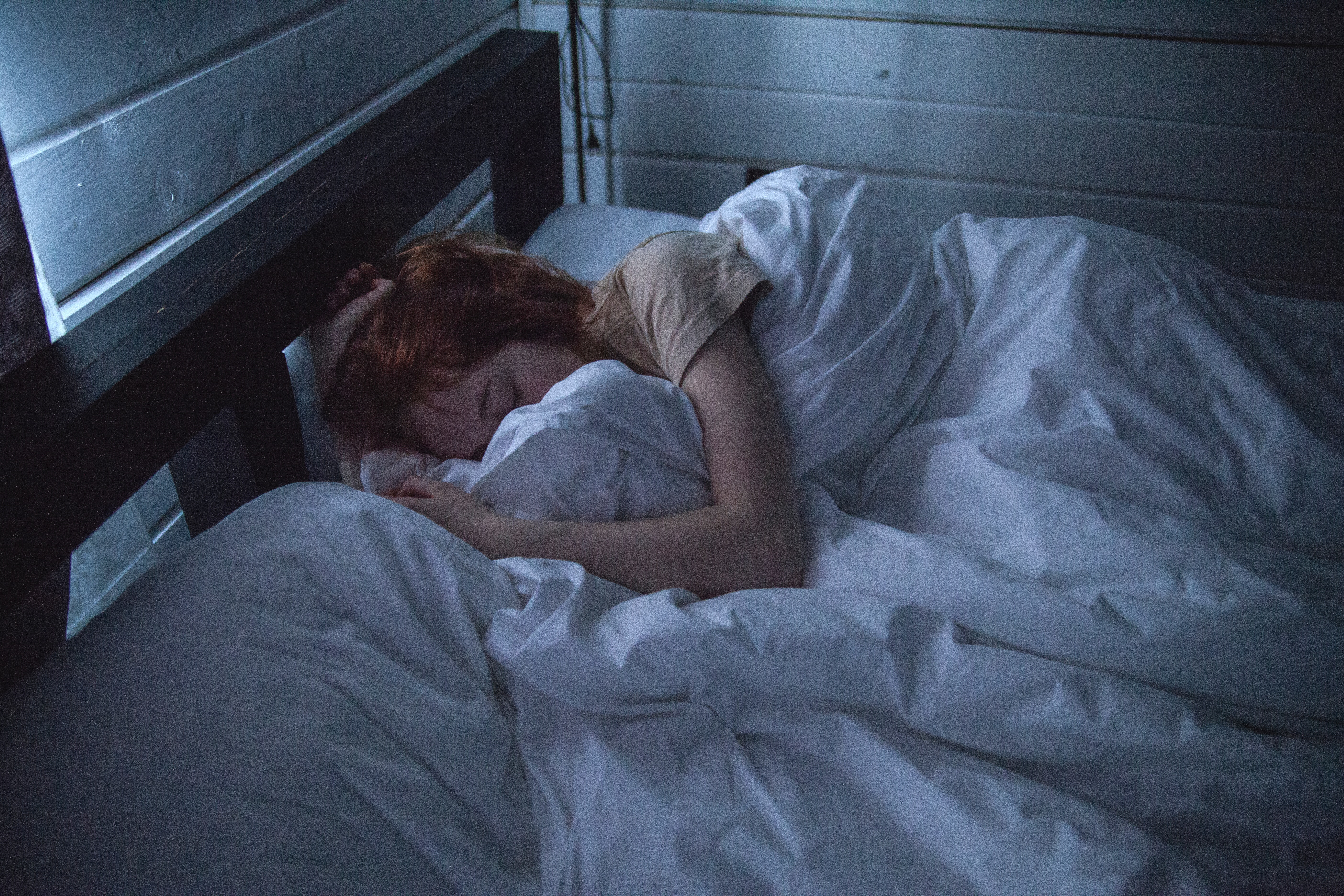
Deep sleep is the phase of sleep during which you sink into restoration mode. Slow, coordinated brain waves that occur during deep sleep allow events and memories from the day to become stored in your short-term memory. Physical skills (like how to perform a new exercise) and brain skills (like how to solve a puzzle) are also remembered during this sleep phase.
During deep sleep your heart and breathing rates drop, your muscles become paralyzed, your blood pressure falls, and your body temperature decreases by up to two degrees. All of these changes trigger your body to prioritize physical recovery and restoration. If you’ve had a physically demanding day, such as a tough workout, your body may favor deep sleep to allow your muscles, joints, and tissues to properly recover.
Your body’s natural circadian rhythm, or biological clock that signals day and night, prioritizes deep sleep within the first 4 hours of a typical 8-hour sleep cycle. For this reason, night owls that stay up well past midnight may sacrifice deep sleep.
If you struggle with deep sleep, try these strategies to increase your deep sleep duration.
Daily physical activity is associated with a longer deep sleep phase and promotes regularities in circadian rhythms and melatonin levels. Exercise seems to be most effective at improving deep sleep when completed earlier in the day while working out close to bedtime delays the release of melatonin. However, exercising shortly before sleep is better than not exercising at all. Exercise alone, without any other interventions, has also been shown to improve sleep apnea.
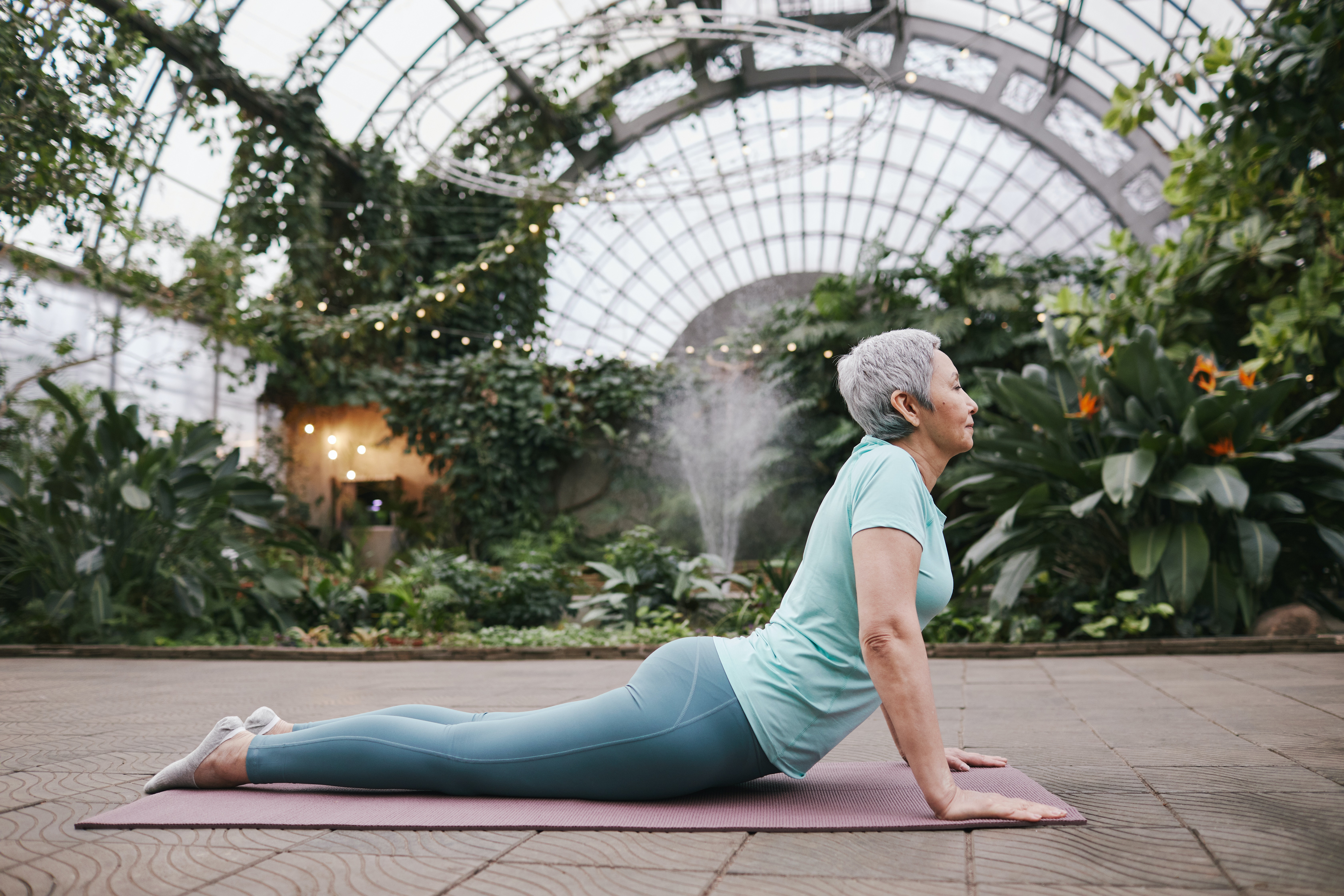
Staying up late and scrolling through social media or reading has been correlated with a decrease in sleep quality and duration. Studies show that compared to an earlier bedtime, staying up late delays your body’s natural clock.
Many people use nightcaps to relax and decompress before sleep, but alcohol interferes with deep sleep. Consuming alcohol even 12 hours before bed can significantly affect sleep quality, and drinking closer to bedtime is even more impactful. Alcohol triggers a rise in body temperature, and increased heart rate, and disrupts REM sleep, a phase that’s crucial for recovery.
Caffeine suppresses sleep pressure, or the urge to sleep. But when caffeine wears off, you’re hit with a wave of fatigue, especially if you are under-rested. Caffeine is a crutch many people use chronically to mask fatigue, and it can be a vicious cycle.
On average, caffeine lasts in your system for 10-12 hours, which means you should time your consumption to finish 12 hours before you want to be in bed. However, some people process caffeine at a different rate based on their genetic variants. To understand more about your body’s response to caffeine, reach out to Love.Life to find out more about nutrigenomics testing. The results of this genetic test may offer further information about how to maximize your sleep length and quality.
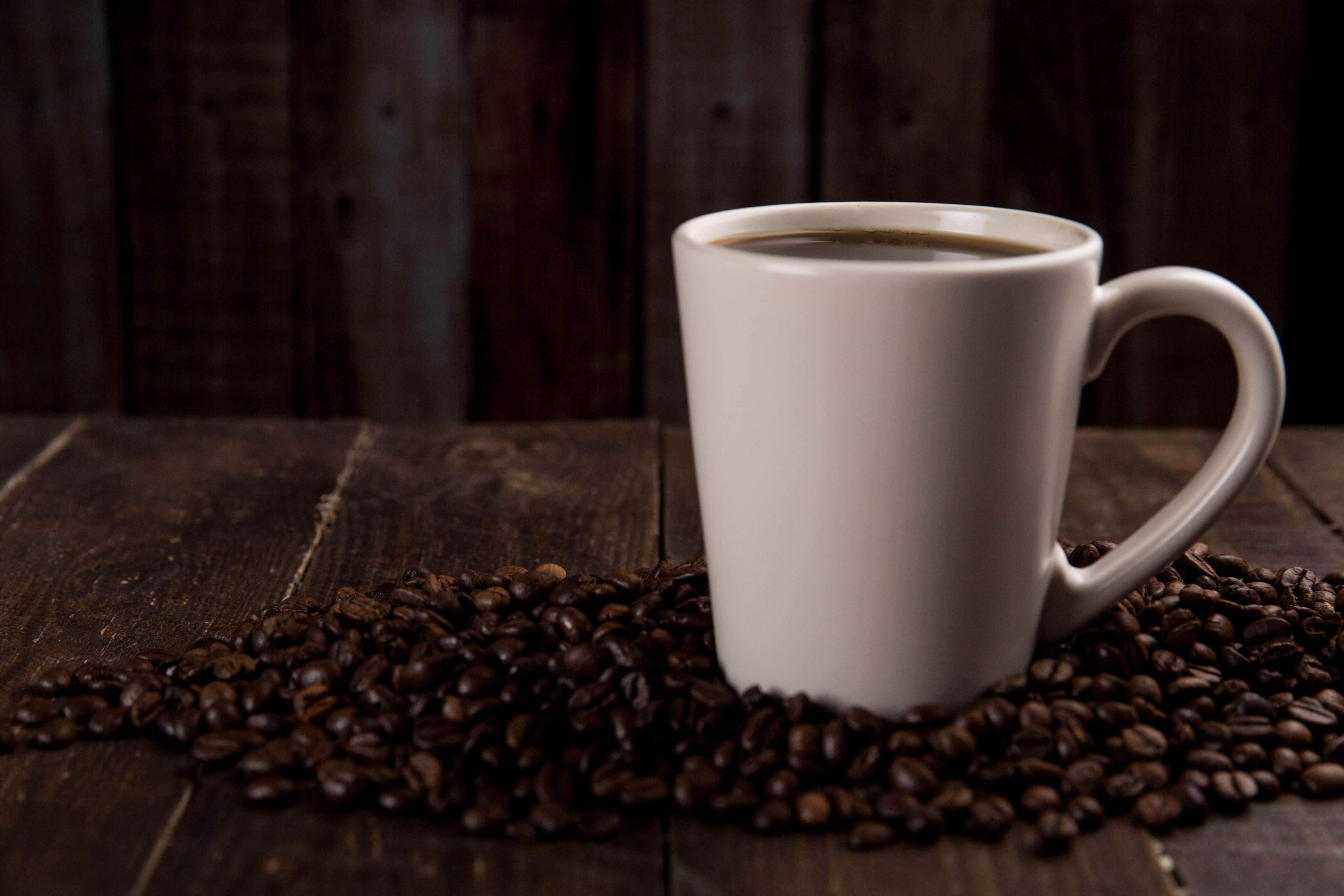
Although some research suggests that occasional CBD use may be helpful in increasing deep sleep length, it has also been associated with trouble falling asleep and wakefulness. Research is conflicting and inconclusive regarding specific recommendations and risks.
People who consume foods low in fiber and high in saturated fat get less deep sleep, even when they have a full night of sleep. Overall, many animal products are high in saturated fat while plants are high in fiber, so eating more plants is a smart way to optimize your sleep.
You may feel drowsy after a glass of wine or more relaxed after smoking, but the true effect of these substances on your sleep can be deceiving. While alcohol, nicotine, or cannabis may help you fall asleep, they can have varying impacts on the quality of your sleep. Due to their sedative effects, various substances can change the amount of time you spend in each sleep stage. This can prevent you from completing enough time in each stage, all of which are crucial for recovery purposes. That’s key, because after a night of quality sleep, you can start your day with the rest you need to feel energized, motivated, and productive, which can improve your ability to make positive health decisions throughout the day. Let’s dive deeper into how each of these substances can impact your sleep.
Alcohol
A “nightcap” may seem like an ideal way to end your day, but alcohol actually does more harm than good. In the past, alcohol was often used as a remedy for insomnia because it’s a depressant. In fact, about 10% of the population still uses alcohol as a sleep aid. Initially, alcohol does trigger a drowsing effect, but it doesn’t continue throughout your sleep cycle. Recent research shows that alcohol negatively affects sleep quality, specifically REM sleep. And like most substances, alcohol can alter your brain activity, which also negatively impacts sleep.
If you drink alcohol close to bedtime, your blood alcohol level rises. Depending on how close your last drink is to the time you fall asleep, your blood alcohol may continue to rise while you sleep. Studies show that just one or two drinks can impact sleep quality and the amount you consume determines which sleep stage is affected. In order to prevent alcohol from interfering with sleep quality, your body needs time to metabolize the alcohol and lower your blood alcohol level before you go to bed.
Research shows that the relationship between alcohol and sleep is a two-way street. Alcohol abuse can cause sleep disturbances and using alcohol as a sleep remedy can lead to problematic alcohol and/or other drug use, specifically for adolescents. Regular alcohol consumption and alcohol dependence have been linked to many sleep problems. And because becoming sober can initially worsen sleep issues, relapses due to a lack of sleep can occur.
One condition in particular that alcohol can cause or aggravate is obstructive sleep apnea (OSA) due to alcohol’s weakening effect on muscles in the throat that are used to breathe. Alcohol can negatively impact the quality of air taken in while sleeping, but this is particularly true for people with OSA or those who snore. Severe OSA not only impacts sleep quality but can also lead to heart disease.
Alcohol is also high in calories. Excess calories from heavy drinking can lead to a higher body mass index (BMI), which is also a risk factor for OSA. In fact, 41% of people with a BMI over 28 were found to have OSA. In addition to OSA, research suggests that occasional alcohol consumption may lead to nightmares and can worsen restless leg syndrome. Consistent nighttime alcohol use can also lead to insomnia and constant waking.
In summary, alcohol has a negative impact on sleep quality and can put you at risk for sleep conditions. At Love.Life we recommend stopping moderate alcohol consumption (1-2 standard drinks maximum per day) at least three hours before bed. If you have trouble falling asleep, you may want to consider avoiding alcohol within 8-10 hours of sleep.

Nicotine
If you feel anxious before bed, reaching for a cigarette may seem like an easy and instant way to relieve stress. However, nicotine is not a long-term stress solution and research shows that it does not support sleep, particularly since nicotine is a stimulant.
Smokers have reported issues with falling asleep, frequent awakenings, daytime drowsiness, and more. In fact, smokers are two times as likely to experience such struggles. Many smokers also experience cravings at night, which causes them to wake up. Fortunately, poor sleep symptoms tied to smoking appear to reverse after quitting.
Similar to alcohol, regular smokers who quit may go through an initial period of withdrawal, which worsens sleep issues and increases the risk of relapse. Research shows that nicotine replacement devices may aid with this transition period. Many smokers who quit experience daytime drowsiness during the nicotine withdrawal period, but this is likely to fade after about 20 days.
OSA and restless leg syndrome are also both associated with nicotine intake. And sleep apnea was found to be 40 times more likely in smokers according to one study. Due to its negative impact on sleep and many other health concerns, Love.Life does not recommend nicotine use of any kind.
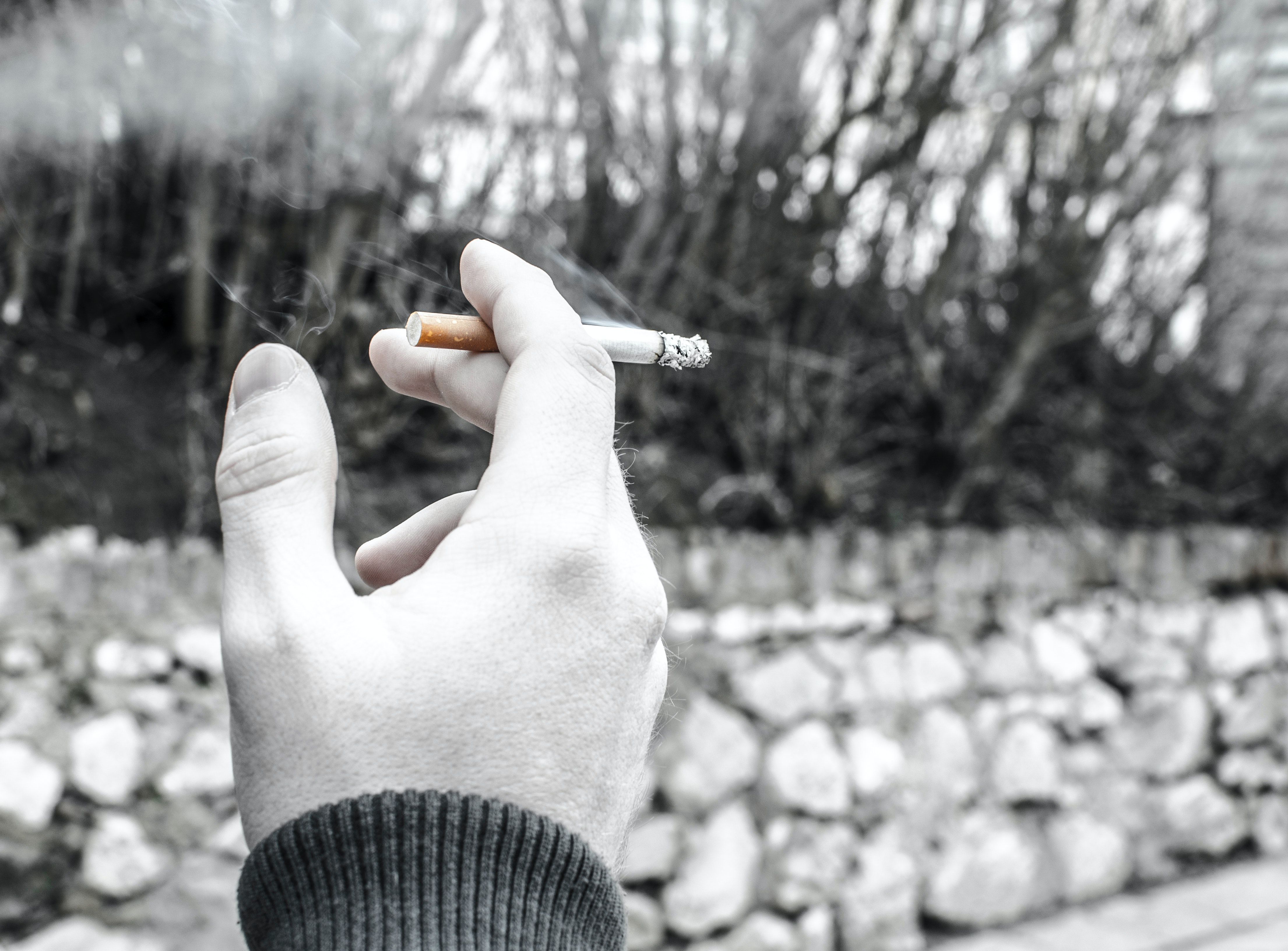
Cannabis
Cannabis is commonly used to help with insomnia. One survey found that out of 1,000 adults who use cannabis, 74% use it for sleep. Research involving cannabis and sleep has yielded mixed results.
Cannabis may potentially aid in falling asleep, decrease nighttime awakenings, and increase sleep time short term. On the other hand, cannabis can affect how much time is spent in each sleep phase or impact circadian rhythms, and the long-term effects are not well known. Studies have also shown small risks associated with cannabis and cannabinoid use, such as nausea, dizziness, dry mouth, and fatigue or drowsiness.
When conducting research on cannabis, most studies focus on the phytocannabinoids of delta-9 tetrahydrocannabinol (THC), which produces an intoxicating effect, and cannabidiol (CBD), which does not cause an intoxicating effect.
Research suggests that CBD in low doses may cause wakefulness, but in medium and high doses may increase sleep quality. Meanwhile, THC could potentially aid in helping people fall asleep, but create negative effects on sleep long-term. Some studies suggest potential benefits for sleep when a low amount of THC is paired with a higher amount of CBD. Others found negative results and suggest that tolerance is developed to THC with long-term use, which decreases its potential positive impacts. Preliminary research has shown that cannabis use may be beneficial for OSA, frequent nightmares, or poor sleep related to chronic pain, but more studies are needed.
Like alcohol and nicotine, frequent cannabis users who quit may experience sleep difficulties, which can lead to relapse. This is important to know when quitting any of these substances, so other methods can be used to improve cessation success and prevent relapses.
Thus far, there is no definitive research regarding cannabis use and sleep. Studies are mixed regarding CBD versus THC, long-term use versus short-term use, and high dose versus low dose effects. Cannabis may aid in falling asleep and lengthen some phases of sleep while shortening others. Here at Love.Life we can help you address sleep issues and provide personalized solutions to improve your sleep quality. Contact us to learn more.
REM is the last phase of sleep. It’s categorized by the presence of rapid eye movements, muscle paralysis, rapid heart rate, and increased shallow breathing. REM, like deep sleep, accounts for 1.5 to 2 hours of total sleep time and is prioritized during the second half of the night. Cutting a night’s sleep short by 2 hours may cut 25% of total sleep, but up to 50% of total REM. This pattern can have dangerous short- and long-term side effects.
REM sleep is core to your brain’s ability to consolidate, organize, and file memorizes. During REM sleep, memories, including good, but particularly bad or painful, are softened and filed for long-term storage. Here, a reduction in trauma, fear, and negative but protective primal instincts are separated from memories. This process reduces the chances that trauma can cause someone to become emotionally inaccessible, as is the case with PTSD.
Dream or REM sleep is essential to emotional recovery and vital for learning. REM sleep is also extremely energizing. The body remains paralyzed, unable to move, scream, cry, run, or laugh, but the mind is very active. The brain activity of REM sleep looks most like an awake, active brain; the only difference being sleep paralysis.
If your REM sleep is less than 1.5 hours, try these strategies to increase its duration.
A pre-bedtime alarm can remind you to start winding down, turn off electronics, and stop looking at screens. Wrap up your evening tasks and begin to prepare for your bedtime routine, which may involve washing your face, brushing your teeth, writing in a journal, saying a prayer, meditating, or stretching. Dim your lights and use lamps or candles to avoid bright, harsh lighting. You can also use this time to draw a warm bath or take a hot shower before bed.
Set an alarm for 5-10 minutes later for an extra 20-50 minutes of REM sleep per week.
Many people use nightcaps to relax and decompress before sleep, but alcohol interferes with deep sleep. Consuming alcohol even 12 hours before bed can significantly affect sleep quality, and drinking closer to bedtime is even more impactful. Alcohol triggers a rise in body temperature, and increased heart rate, and disrupts REM sleep, a phase that’s crucial for recovery.
Although THC is often used as a sleep aid, there are mixed results regarding the effect of cannabis on sleep. Research suggests that THC can have a negative impact on REM sleep length and quality.
1: Stick to a routine, even on weekends. Ideally, go to bed and wake up at or near the same time each day. Any routine that fits your schedule and allows for about 8 hours is reasonable.
2: Exercise in the morning or early afternoon, preferably outdoors or near east-facing windows. Seeing sunlight while engaging in physical activity during the day helps promote deep sleep at night.
3: Look out at the early morning light for at least 5 minutes. This helps keep your circadian rhythm synchronized. Seeing the sunset or being outside around dusk is also beneficial to your circadian rhythm and can be especially helpful when changing time zones.
4: Ditch the afternoon coffee. On average, caffeine can stay in your system for 12 hours, so time your morning coffee or tea 12 hours before you want to be in bed.
5: If you consume alcohol, limit to 2 drinks per day for men and 1 for women, and don’t drink alcohol within three hours of bedtime. Alcohol causes sleep to be fragmented, raises core body temperature, and decreases deep sleep. You’ll get your best sleep when your body temperature drops and sleep is uninterrupted.
6: Avoid bright lights, screens, smartphones, or sources of blue light 3 hours before bed. Blue light decreases melatonin production and increases cortisol, which throws off sleep cycles. Try to add candles, dim lamps, or natural “fire light” to your evening routine.
7: Make your bedroom a dark cave since even a little light can disrupt sleep significantly. Minimize light from phones, alarm clocks, and even smoke detector sensors until you want to naturally wake up.
8: Make your room cool. Set your thermostat to 65-68°F to help trigger a drop in core body temperature, a sleep signal for your body.
9: Nap a little, but not too much. Keep naps to less than 30 minutes to support a bump in energy, ideally, in the early afternoon, no later than 3 p.m.
10: Eat light and early. Eat enough to be satisfied (not too hungry or too full) and finish your last meal or snack 3 hours before bed. This will give your body time to digest the food and prepare for rest.
Sleep plays a crucial role in your overall well-being and its significance extends far beyond simply feeling refreshed each morning. In fact, quality sleep is a cornerstone of health. From bolstering your immune system and supporting cellular repair to enhancing your cognitive function and emotional well-being, the importance of sleep cannot be overstated. Read on to explore the profound impact sleep has on your lifespan.
Sleep is not a passive activity; it’s a dynamic state during which your brain and body engage in active processes. While you sleep your nervous system regulates signals and hormones that affect your immune system. These include the activity and reproduction of immune cells and the production of antibodies. In general, sleep deprivation suppresses overall immune function and increases the risk of getting sick.
Data shows that there is a modest, yet significant, increase in the risk of having a heart attack after you “spring forward” and lose an hour of sleep post daylight savings time. A lack of sleep is also associated with a higher risk of stroke and cancer. Too little sleep increases the likelihood of developing characteristics associated with metabolic syndrome, like insulin resistance (type 2 diabetes) and weight gain.
Poor sleep also inhibits physical recovery. Growth hormones are typically released during deep sleep. When that’s interrupted, DNA recovery and tissue repair are impaired. This affects all types of recovery, from a sunburn or paper cut to the healing of muscles and bones. Sleep deprivation has also been associated with low testosterone and impaired fertility. In addition, inadequate sleep decreases motivation to exercise.
While many athletes and active people focus on post-workout foods or supplements to promote recovery, they often forget about another key recovery tool: sleep. Read on for more about the benefits of sleep for active adults:
Whether you participate in recreational exercise or professional athletics, your body requires mending from physical activity. Sleep has been shown to be one of the most beneficial ways to promote exercise recovery. Poor sleep can reduce growth hormone levels, which can interfere with healing. In addition, a lack of sleep is associated with poor eating habits, which can also hinder recovery.
A lack of sleep has been tied to a higher rate of injuries, particularly concussions. Adequate sleep can help reduce injuries by physically supporting your body’s structure, and by enhancing brain function and reaction time, which can result in fewer mistakes and accidents.
Sleep enhances injury healing, partly through its anti-inflammatory impact. Healthy sleep also supports good nutrition choices, which further enhance recuperation.
In addition to cognitive function, mental health and mood can take a toll when sleep is not prioritized. Not getting enough sleep has been linked to poor mental health outcomes, such as anxiety and depression or worsening of these conditions. In addition, research suggests that poor mental health is associated with an increased injury risk.
Sleep deprivation increases inflammation, which suppresses immune function. When the immune system is impaired, so is recovery. Too little sleep also increases cold and flu susceptibility.
Likely related to the improved recovery sleep provides, healthy sleep has been linked to better performance and endurance. After a poor night’s sleep active people often experience a quicker onset of exhaustion, a perceived increase in effort, and impaired accuracy of their sport.
What and when you eat can play a big role in your ability to fall asleep and stay asleep. For example, eating a large meal that’s high in fat and refined carbs can make you sleepy. But a big meal can also cause your blood sugar and insulin levels to spike, which can lead to a crash that wakes you up in the middle of the night. Fasting, or not eating enough, can also disrupt your sleep.
Ideally, on a day-to-day basis, aim for balanced meals that are rich in fiber and complex carbohydrates to optimize your sleep. In addition, regular mealtimes and consistently balanced meals can help regulate your body’s circadian rhythms, which supports healthy sleep.
Here’s what to eat and what to avoid to promote a more restful night:
Research shows that a fiber-rich diet improves sleep. A high-fiber diet is also linked to many health benefits, including reduced chronic disease rates. High-fiber foods include vegetables, fruits, legumes, whole grains, nuts, and seeds.
Melatonin precursors
Melatonin precursors are a natural way to boost your body’s levels of melatonin, a hormone linked to improved sleep quality. Tart cherry juice, for example, is a good source of natural melatonin precursors. It’s also a potent anti-inflammatory food. More foods to help you sleep:
Foods high in tryptophan
Your body cannot make tryptophan, so you must consume it from food. Tryptophan is used to make serotonin and, in turn, melatonin. That’s why studies have shown that foods high in tryptophan can help you fall asleep. Examples include:
Studies suggest that low magnesium diets are linked to inadequate sleep or more night-time wakefulness. Meanwhile, diets with adequate magnesium are associated with sufficient sleep. Foods that provide magnesium include:
Chamomile tea contains a phytonutrient called apigenin, known to help the body’s natural sleep and hormone cycles and it’s caffeine-free.
On average, caffeine lasts in your system for 10-12 hours, which means you should time your consumption to finish 12 hours before you want to be in bed. However, some people process caffeine at a different rate based on their genetic variants. To understand more about your body’s response to caffeine, contact Love.Life about nutrigenomics testing. The results of this genetic test may offer further information about how to maximize your sleep length and quality.
Research shows that consuming high-saturated fat and low-fiber foods leads to less deep sleep and more nighttime awakenings. High-saturated fat foods include fried foods, dairy products, baked goods, and processed meats. Overall, many animal products are high in saturated fat while plants are high in fiber, so eating more plants is a smart way to optimize your sleep.
Foods high in protein and/or fat, especially animal products, take longer to digest and can cause nighttime awakenings, particularly when consumed shortly before bed. These include meats, such as chicken, beef, or pork, and dairy products, like ice cream and cheese.
Studies have linked high sugar intake to waking up during the night. For optimal sleep, minimize refined sugar and incorporate fiber-rich carbohydrates throughout the day.
More